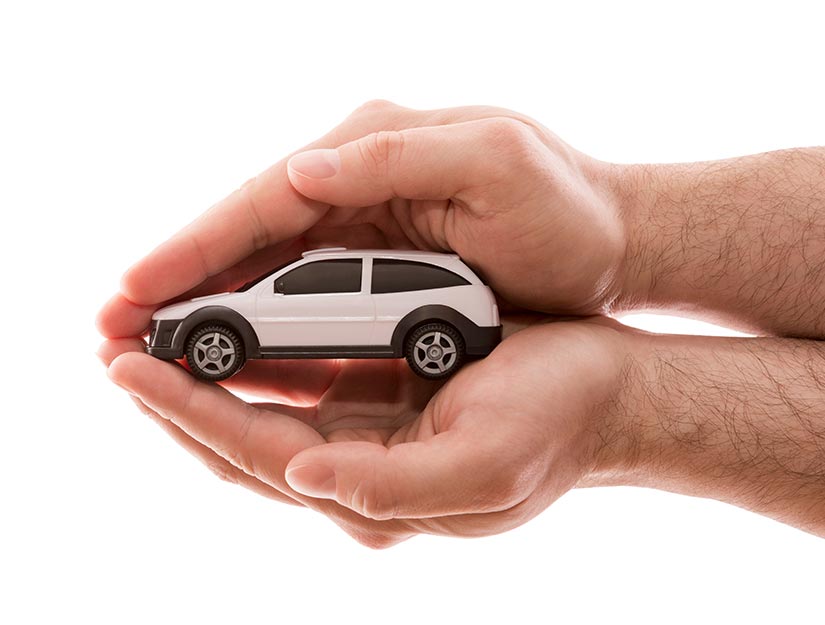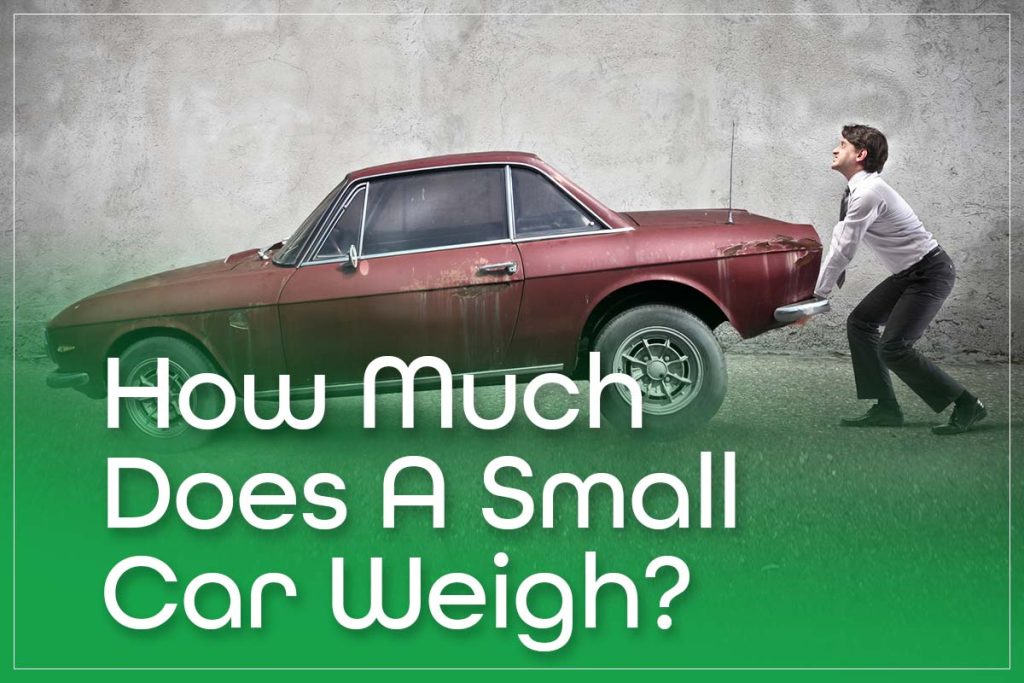Small cars like coupes and hatchbacks have become more popular as more people capitalise on their compactness to navigate tight city roads and limited parking spaces. However, have you ever asked yourself, ‘How much does a small car weigh?’
Weight plays a crucial role in the vehicle’s safety, performance and fuel economy. This article will explore the typical weight ranges of small cars and the factors that determine the weight of the vehicle. Whether you’re curious about the design of small cars or are looking to buy one, we’ll answer all your questions about their weight.
A small car is one that has a compact design and maximises the use of space. Small cars usually come with less passenger and storage space than standard automobiles. Their compact design makes them suitable for navigating crowded roads, and they fit into tight spaces easily.
Small cars fall into two main categories, which are subcompact and compact cars:
- Subcompact cars: A subcompact car has an interior and cargo volume of 85 to 99 cubic feet.
- Compact cars: Compact cars are slightly larger than subcompact cars but smaller than mid-sized cars. They have an interior volume index of between 100 and 109 cubic feet for cargo and passengers. Learn more about what a compact car is.
Tip: Maximise the cargo space in a small car using organisers, collapsible bins and cargo nets.
Small Car Weight

The average weight of a small car depends on the model, the year it was manufactured and the manufacturing material. Below are the two major categories of small cars and the average weight of vehicles in both categories.
Subcompact Car Weight
The average weight of a subcompact car is around 2,510 pounds (1139 kilograms). Vehicles in this category may weigh slightly more or less. For example, the Mitsubishi Mirage weighs 2,095 lb (950 kg) in its lightest trim, while the Kia Rio weighs 2,767 lb (1,255 kg). The Mini Cooper Hardtop weighs 3,144 lb (1,426 kg) and is one of the heaviest vehicles in this category.
Compact Car Weight
The average weight of a compact car is around 3,000 lb (1,360 kg). Examples of cars in this weight category include the Honda Civic, with a curb weight between 2,935 and 3,077 lb (1,331 and 1396 kg), and the Tesla Model 3, with a curb weight of 3,648 lb (1,654 kg). See our compact car vs economy car guide to see how these vehicle categories compare in different areas.
Smart Car
In addition to compact and subcompact cars, there are smart cars, which weigh even less. Smart cars weigh 1,550 pounds (703 kg) on average, with seating capacity for between two to four people. Examples of smart cars are the Smart Fortwo and Smart Forfour, which are among the smallest cars in the world. See the world’s smallest car.
Measuring Car Weight

Car weight is measured using a vehicle weighing scale. The most common vehicle weighing equipment is a weighbridge. A weighbridge is a large platform on which you can park a vehicle to measure its weight or the weight of goods it’s carrying.
Tip: Get everyone alight from the car and remove all cargo to get an accurate weight measurement.
You can also find the exact weight of your car without measuring it by using any of the following methods:
- VIN decoder: You can determine your car’s weight by inputting your VIN code into a VIN decoder.
- Owner’s manual: Some manufacturers indicate the weight of the vehicle and other specifications in the owner’s manual.
- Driver’s side door: Some cars usually have stickers on the driver’s side door that indicate the weight of the vehicle and other information.
Learn about an economy car and how it differs from other vehicle categories.
Different Types Of Car Weight
There are different types of car weights, and each one provides different information about the vehicle.
- Curb Weight: Curb weight is the car’s weight without the driver, passengers, equipment and cargo.
- Gross Vehicle Weight: This comprises the curb vehicle weight and the weight of passengers, cargo and extra equipment.
- Gross Vehicle Weight Rating (GVWR): This is the maximum weight it can withstand without compromising safety.
- Gross Combined Weight Rating (GCWR): This is the maximum weight a car can carry, including the weight of the trailer it is towing.
- Gross Axle Weight Rating (GAWR): This is the maximum allowable weight that a single car axle can carry.
- Payload Capacity: Payload capacity is the maximum weight a car can carry.
- Towing Capacity: The most weight the car can haul.
Small cars tend to have lower purchase prices and insurance costs.
Why Does Car Weight Matter?
Car weight matters because it plays an important role in the overall performance of your vehicle. It can impact how often you stop for fuel, the cost of insurance and so much more.
Here are some crucial reasons to know your car’s weight:
- Overloading: Cars have payload and gross vehicle weight limits you must not exceed. Knowing your vehicle’s weight can help avoid overloading it.
- Safety: Weight is one of the factors that determine damages that a vehicle incurs following an accident. A bigger, heavier vehicle provides better protection than a lighter one during a crash.
- Fuel consumption: Heavier cars consume more fuel because they have greater inertia and rolling resistance. The EPA estimates that fuel consumption decreases by 1 to 2% for every 100 pounds of weight you take out of a car.
- Maintenance: Most times, you have to consider the weight of a car when selecting appropriate maintenance tools. Tools like jacks have categories to match vehicle weight.
Frequently Asked Questions
How Much Do Most Small Cars Weigh?
Most small cars weigh between 2,510 lb (1139 kg) and 3,000 lb (1,360 kg). The exact weight of your car may vary based on the model, the year it was manufactured and the manufacturing material. You can determine the weight of your car by using a weighbridge, VIN decoder or checking the owner’s manual.
How Much Does An Average Car Weigh?
An average car weighs 4,156 lb (1,885 kg), according to a 2020 report from the EPA. Small cars weigh between 2,510 lb (1139 kg) and 3,000 lb (1,360 kg), while a large car weighs about 4,400 lb (1,996 kg) on average. SUVs and trucks range from 3,500 lb (1,134 kg) to over 6,000 lb (2,721 kg).
Can A Car Be 1 Ton?
Yes, a car can be 1 ton. A 1-ton vehicle means its payload capacity is 1 ton (or 2,000 pounds) and above, not that its weight is 1 ton. The average small car has a payload of less than one ton, but larger automobiles like pickup trucks have 1-ton payloads. The Ford F-150, Chevrolet Silverado 1500 and Ram 1500 are examples of 1-ton cars.
How Heavy Is A Smart Car In Kg?
A smart car weighs 1550 pounds (703 kg) on average. The heaviest smart car weighs around 2,998 pounds (1360 kg), which is much lower than the average car weight of 4,156 pounds (1,885 kg). The exact weight of a smart car depends on its model and manufacturing year. Smart cars are usually very compact, and they are made from durable, lightweight materials.
Conclusion
So, how much does a small car weigh? The weight of a vehicle depends on factors such as model, material and manufacturer. However, small cars weigh between 2,510 pounds (1139 kg) and 3,000 pounds (1,360 kg) on average. Knowing the weight of your vehicle is important as it can help maximise fuel consumption and ensure safety, especially when hauling.




